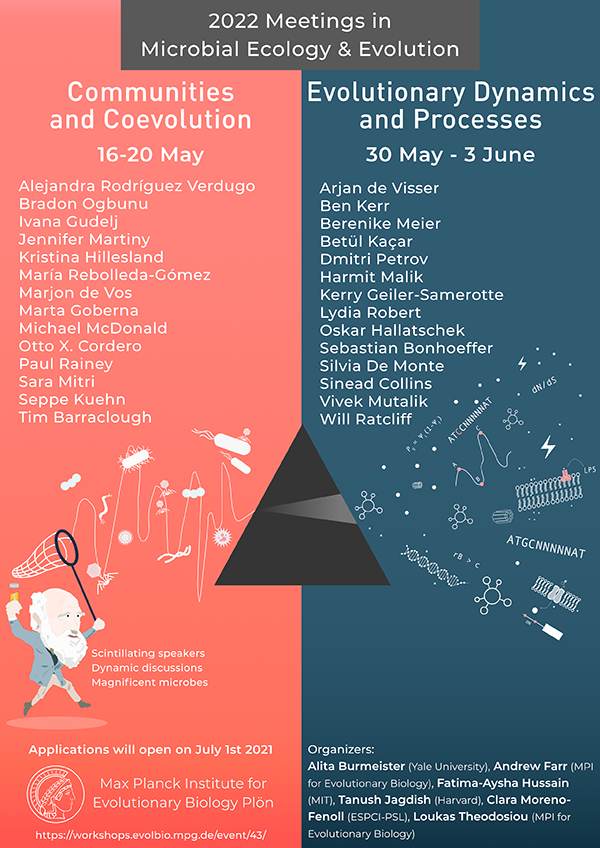Speaker
Description
Community assembly can reach different outcomes depending on the history of species arrival, a phenomenon known as a priority effect. The study of priority effects has traditionally focused on the ecological consequences of arrival history, often assuming that evolution occurs too slowly to influence community assembly. However, recent models suggest that accounting for local adaptation would alter predictions of community assembly outcomes. We used a series of fully factorial experiments to ask whether previous experiment in an environment (the tomato plant phyllosphere) improved the abilities of bacterial species to invade established communities and/or to resist invasion. We found that prior adaptation to the environment could change the directionality and magnitude of priority effects, but these changes were not always advantageous for the locally adapted species. Further examination revealed that this result was mediated by the evolution of a slower life history, which improved colonization in isolation, but increased vulnerability to timing in competitive conditions. Our study supports a role for eco-evolutionary processes in priority effects, showing that selection can generate traits that feed back to influence community ecology and vice versa.

